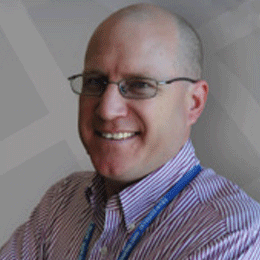How do you define leadership? Influence is the word that I use. Influence means to have a compelling force on or produce effects on the actions, behaviors or opinions of others.
In the business world, leadership is often related to a person in a position of power. Leadership is not about position. It is about the action that a person takes. The position does not make a person of influence; a person of influence makes the position. Whether you are in sales, a service manager or the owner of the dealership, your actions (positive or negative) influence others.
In order to influence others, we must first learn how to “think” as a leader. Good thinkers are in demand — they solve problems, hope for a better future and are successful in their personal lives and careers. For some of us, this way of thinking comes naturally, but for most of us we have to work at it and be intentional. Don’t worry. It is worth the investment of time and effort.
Becoming a Good Thinker
To become a better thinker, you must engage in an intentional and ongoing process. There are three components I want to encourage here.
1. Expose yourself to good input and other good thinkers. What are you reading? What industry magazines or newsletters or books are you reading? Who do you spend time with? Who influences your thinking? The more time you spend putting great thoughts into your mind, the better thinker you will become.
2. Choose to think good thoughts. Thinking is a discipline and a choice. Choose to look for the best in every situation and choose to say “How can we make this work?”
3. Act on your good thoughts. Ideas have a short shelf life. You must act on them before you move on to the next item. Here is a great phrase to remember: Think things through and then follow through.
Change Your Thinking
Here are six ways of thinking to help you influence your team and benefit your dealership.
1. “Big Picture” Thinker. When you think big picture, you see the vision of your dealership, your market, your customers and your team more clearly. You show others how the future connects to the past and you make the journey more meaningful. A big picture thinker sees meaning and learning in every step.
2. Focused Thinker. Focused thinking removes distractions and mental clutter so that you can think with clarity. To accomplish this, you must know your goals and priorities, keep them in front of you and set aside time daily or weekly to invest in them. Say “no” to distractions that keep you from achieving your goals.
3. Possibility Thinker. Possibility thinkers believe they can succeed. Starting right now, I want you to stop searching for and dwelling on what’s wrong or what didn’t go right and focus on what can be done or how can you make something happen. Possibility thinking is much more than refusing to be negative. It is the act of looking for positive possibilities despite your circumstances. Challenge the status quo and think bigger.
4. Shared Thinker. A shared thinker values the thoughts and ideas of others. When you combine their thoughts with your thoughts, you both accomplish more than you thought was possible. Stop competing with those you work with. Your focus should be on helping the team, not just yourself.
5. Unselfish Thinker. Unselfish thinkers put others first and above their own needs, desires and interests. They ask questions to learn and understand perspectives. Once you understand different perspectives, more answers and opportunities will become available. Make sure you watch your motives here. If you are being unselfish for personal gain or recognition, are you really being unselfish?
6. Bottom Line Thinker. When I think of bottom line, it means how we define success. It could be profit, revenue or a specific number of units sold. Before you start any endeavor, ask “What are we really after here?” Know what success looks like in every situation and work toward it. Without knowing the bottom line, we are being active but not productive.
Leaders of influence have three tools at their disposal: How they think, what they say and how they act. Become intentional and have discipline about how you think and you will change what you say and how you act.





